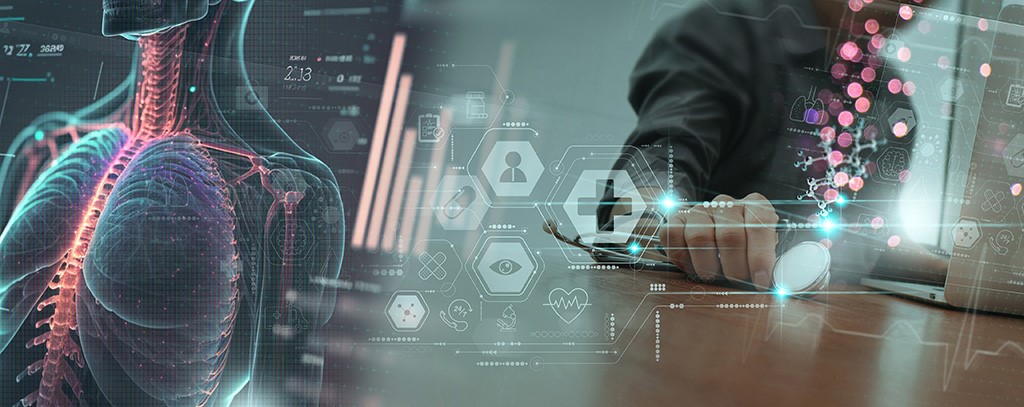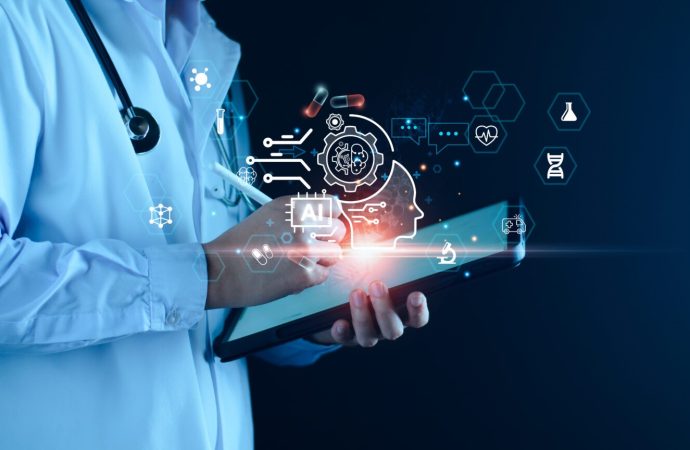The advent of artificial intelligence (AI) has been one of the most transformative developments in the 21st century, impacting various sectors including finance, transportation, and entertainment. Among these, healthcare stands out as a field where AI, particularly Generative AI, is poised to make groundbreaking contributions. Generative AI in healthcare is not just a buzzword; it
The advent of artificial intelligence (AI) has been one of the most transformative developments in the 21st century, impacting various sectors including finance, transportation, and entertainment. Among these, healthcare stands out as a field where AI, particularly Generative AI, is poised to make groundbreaking contributions. Generative AI in healthcare is not just a buzzword; it represents a paradigm shift in how we diagnose, treat, and manage diseases. This article delves into the transformative potential of Generative AI in healthcare, focusing on its applications, benefits, and challenges.
What is Generative AI?
Generative AI refers to a subset of artificial intelligence that uses algorithms to generate new data from existing datasets. Unlike traditional AI, which primarily focuses on analyzing and interpreting data, Generative AI can create new, synthetic data that mimics real-world data. This capability makes it particularly useful in healthcare, where data privacy and the need for large datasets are critical issues.
Applications of Generative AI in Healthcare
1. Medical Imaging and Diagnostics
One of the most promising applications of Generative AI in healthcare is in medical imaging and diagnostics. Traditional imaging techniques like X-rays, MRIs, and CT scans are invaluable tools for diagnosing various conditions. However, these methods are often limited by the quality and quantity of available data. Generative AI can enhance these images, filling in gaps and providing more detailed visualizations. For instance, Generative Adversarial Networks (GANs) can be used to improve the resolution of medical images, making it easier for radiologists to identify abnormalities.
2. Drug Discovery and Development
The process of drug discovery is notoriously time-consuming and expensive. Generative AI can expedite this process by simulating how different compounds interact with biological systems. By generating virtual models of molecular structures, AI can predict how new drugs will behave, thereby reducing the need for extensive laboratory testing. This not only accelerates the development of new medications but also lowers costs, making treatments more accessible.
3. Personalized Medicine
Personalized medicine aims to tailor treatments to individual patients based on their genetic makeup, lifestyle, and other factors. Generative AI can analyze vast amounts of data to identify patterns and correlations that would be impossible for humans to discern. This enables the creation of personalized treatment plans that are more effective and have fewer side effects. For example, AI can generate synthetic data to simulate how a particular drug will affect a specific patient, allowing for more accurate dosing and treatment strategies.
4. Predictive Analytics
Predictive analytics involves using historical data to forecast future events. In healthcare, this can mean predicting disease outbreaks, patient readmissions, or the progression of chronic conditions. Generative AI can enhance predictive models by generating additional data points, making predictions more accurate. This is particularly useful in public health, where timely and accurate predictions can save lives.

Picture by: Yandex.com
Benefits of Generative AI in Healthcare
1. Improved Accuracy and Efficiency
Generative AI can analyze and interpret complex datasets more quickly and accurately than humans. This leads to faster diagnoses and more effective treatments. For example, AI algorithms can sift through thousands of medical records in seconds to identify patterns that indicate a particular disease, allowing for earlier and more accurate diagnoses.
2. Cost-Effectiveness
The healthcare industry is burdened by high costs, from drug development to patient care. Generative AI can reduce these costs by automating tasks, improving diagnostic accuracy, and accelerating drug discovery. This makes healthcare more affordable and accessible to a broader population.
3. Enhanced Patient Outcomes
By enabling personalized medicine and improving diagnostic accuracy, Generative AI can significantly enhance patient outcomes. Tailored treatment plans are more effective, leading to quicker recoveries and fewer complications. Moreover, predictive analytics can help in early intervention, preventing diseases from progressing to more severe stages.
Challenges and Ethical Considerations
1. Data Privacy and Security
One of the most significant challenges in implementing Generative AI in healthcare is ensuring data privacy and security. Healthcare data is highly sensitive, and any breach can have severe consequences. While Generative AI can generate synthetic data to mitigate some of these concerns, robust security measures are still essential.
2. Bias and Fairness
AI algorithms are only as good as the data they are trained on. If the training data is biased, the AI will also be biased, leading to unfair treatment recommendations. Ensuring that AI systems are trained on diverse and representative datasets is crucial for fairness.
3. Regulatory Hurdles
The healthcare sector is heavily regulated, and for good reason. Any new technology, including Generative AI, must undergo rigorous testing and approval processes to ensure safety and efficacy. Navigating these regulatory landscapes can be time-consuming and complex.
4. Ethical Concerns
The use of AI in healthcare also raises ethical questions. For instance, who is responsible if an AI system makes a wrong diagnosis? How do we ensure that AI complements rather than replaces human healthcare providers? These are questions that require careful consideration and robust ethical frameworks.
Conclusion
Generative AI in healthcare is not just a technological advancement; it is a revolution that has the potential to transform the way we diagnose and treat diseases. From improving diagnostic accuracy to accelerating drug discovery and enabling personalized medicine, the benefits are manifold. However, realizing this potential requires addressing significant challenges, including data privacy, bias, and regulatory hurdles. As we navigate these complexities, the focus must remain on leveraging Generative AI to enhance patient outcomes and make healthcare more efficient and accessible. The future of healthcare is bright, and Generative AI is leading the way.
















